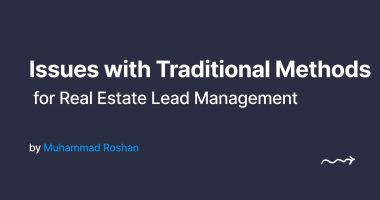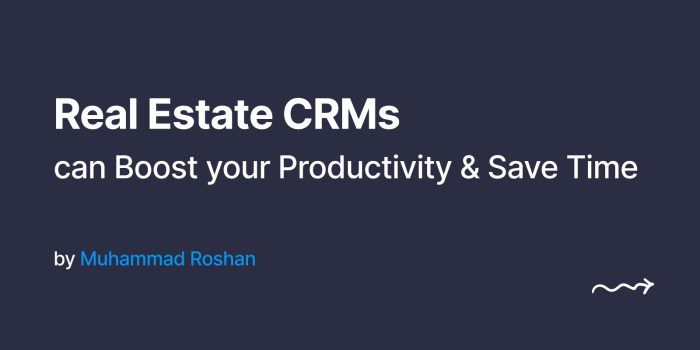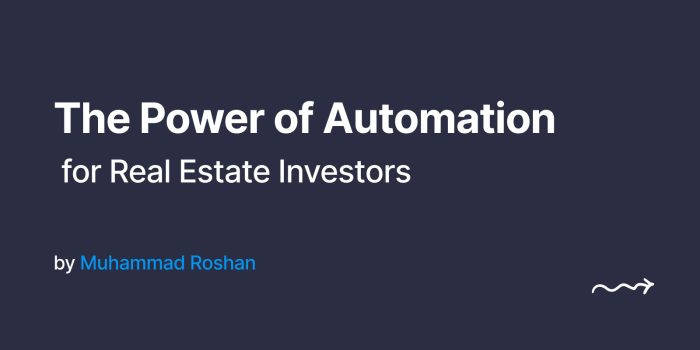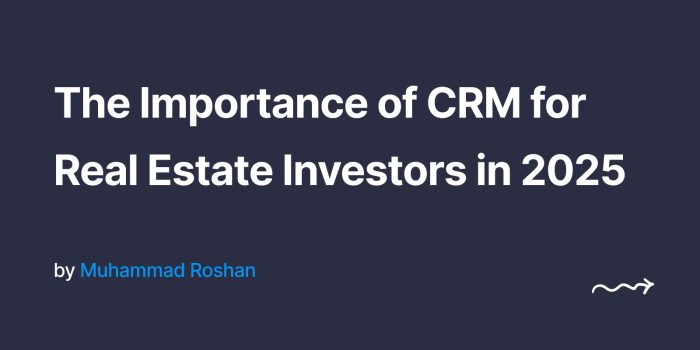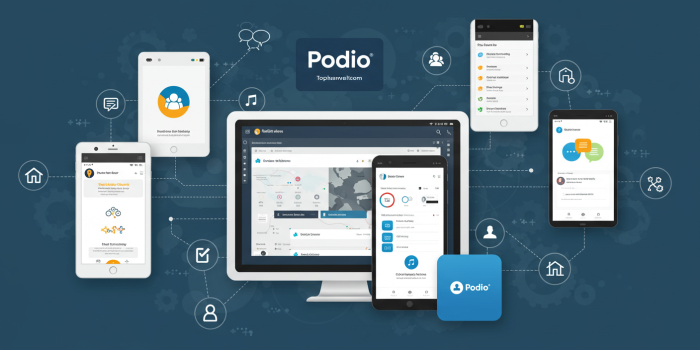In real estate, generating and managing leads is the engine that drives growth. But in a market where competition is fierce and speed is everything, relying on traditional lead management methods—like spreadsheets, notebooks, or manual call logs—isn’t just outdated. It’s holding you back.
Today’s successful investors and agents are turning to real estate CRMs and automation tools that streamline operations, track leads accurately, and close more deals. If you’re still relying on old-school tactics, it’s time to rethink your approach.
The Problem With Traditional Real Estate Lead Management
Traditional methods of managing real estate leads usually look like this:
- Sticky notes with contact info
- Excel spreadsheets updated manually
- Handwritten notes after every seller call
- Relying on memory for follow-ups
- Sifting through emails for deal status
These methods worked in the past—but today, they’re creating more chaos than clarity.
5 Reasons Traditional Lead Management Fails in Real Estate
Let’s break down why traditional methods fall short in today’s real estate environment:
1. Leads Slip Through the Cracks
When you’re managing multiple seller leads and buyer inquiries manually, it’s easy to:
❌ Forget to follow up
❌ Lose contact details
❌ Miss important timelines
Every missed lead is a missed opportunity—and potentially thousands in lost profit.
2. No Lead Prioritization
Traditional tools don’t help you distinguish between:
- Hot, ready-to-close sellers
- Cold leads who need nurturing
- Dead leads that waste time
Without clear lead status and segmentation, you waste time chasing unqualified prospects.
3. Lack of Automation
Manual systems can’t:
- Send automated follow-ups
- Trigger reminders based on lead behavior
- Sync with your marketing platforms
This means you’re working harder, not smarter—and your competitors using automation are likely outrunning you.
4. No Real-Time Insights
Old systems give you no way to measure key metrics like:
- Lead source performance
- Follow-up frequency
- Average conversion time
- ROI from marketing channels
Without insights, you’re guessing—not growing.
5. Poor Team Collaboration
If you’re working with acquisition managers or virtual assistants, traditional methods make it hard to:
- Share updates
- Track accountability
- See progress at a glance
This leads to confusion, duplicated work, and missed follow-ups.
The Modern Solution: Real Estate Lead Management with a CRM
A Customer Relationship Management (CRM) system solves all of the above—and more. A good real estate CRM allows you to:
✅ Capture leads automatically from websites, ads, and calls
✅ Segment leads by stage and priority
✅ Track interactions and tasks in one place
✅ Automate follow-ups via email and SMS
✅ Collaborate with your team in real-time
✅ Analyze data and performance to improve results
This not only saves time—it leads to better decisions and more deals closed.
Why Podio CRM Is Perfect for Real Estate Professionals
Podio CRM is a customizable, automation-friendly platform trusted by real estate investors, wholesalers, and agents. It’s especially powerful for lead management because it allows you to:
- Build visual pipelines to track lead status
- Automate reminders and marketing sequences
- Store seller and buyer info securely
- Assign leads to team members instantly
- Integrate with tools like CallRail, REI Reply, and Zapier
If you’re tired of clunky spreadsheets and missed follow-ups, Podio CRM is a scalable solution that grows with your business.
Real-World Example: Manual Chaos vs CRM Clarity
Without a CRM:
Sarah, a real estate wholesaler, tracks leads in a spreadsheet. She forgets to follow up with a motivated seller who ends up signing with a competitor. That $15,000 assignment fee? Gone.
With a CRM:
Sarah uses Podio CRM to track every lead. Automated texts remind her of follow-ups. She catches the seller at the right moment, locks in the deal, and closes within two weeks.
Result: Efficiency, profit, and peace of mind.
How to Transition from Traditional Methods to a Real Estate CRM
Here’s a simple path to upgrade your lead management system:
1️⃣ Audit your current process
What are you using now? Where are the breakdowns?
2️⃣ Define your must-haves
Do you need automation? Mobile access? Team collaboration?
3️⃣ Choose the right CRM
We recommend starting with Podio CRM—especially tailored versions like REI Podio CRM built for real estate wholesalers and investors.
4️⃣ Migrate and train
Move your leads into the CRM, get trained, and establish workflows.
5️⃣ Track and improve
Use reports and dashboards to measure your performance and tweak your strategy.
FAQs About Lead Management in Real Estate
A: Yes—CRMs help you stay organized and prevent costly mistakes, regardless of business size.
A: Podio CRM is highly customizable and widely used by real estate professionals.
A: Not with proper onboarding. Done-for-you services like REI Podio CRM even include setup and training.
A: Absolutely. Better organization and automation directly improve lead conversion rates.
Conclusion
Traditional methods might feel familiar—but they’re failing modern real estate professionals. If you’re still using spreadsheets and memory to manage your leads, you’re leaving money on the table.
A real estate CRM like Podio CRM helps you:
✅ Capture more leads
✅ Stay organized
✅ Automate follow-ups
✅ Work with your team efficiently
✅ Close more deals, faster

